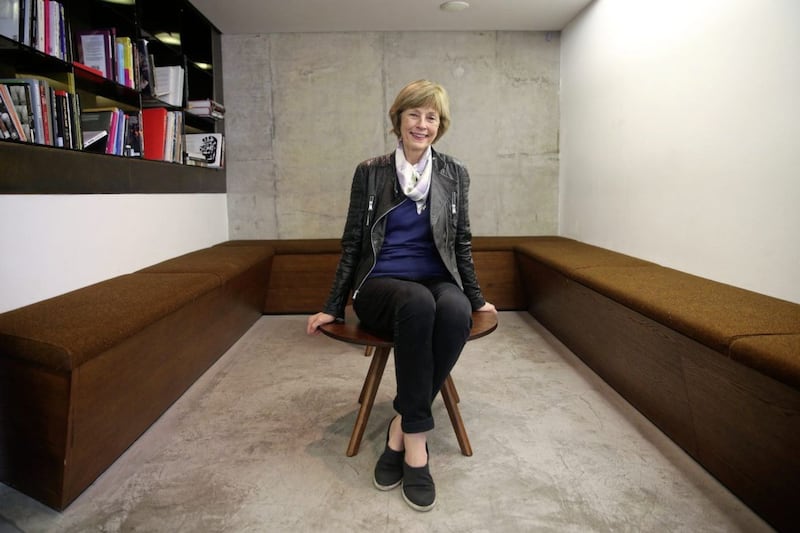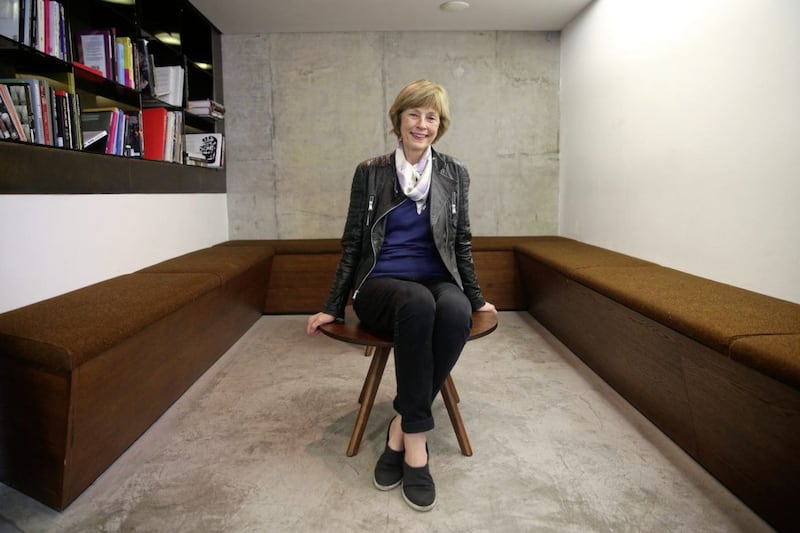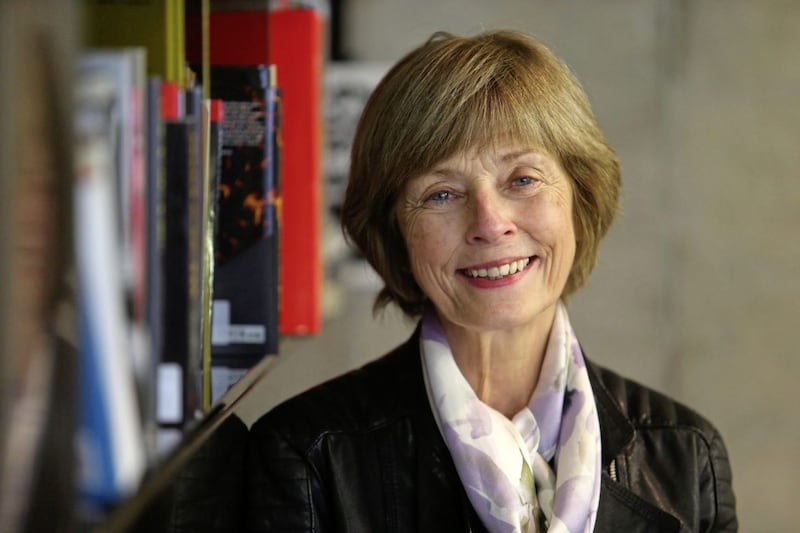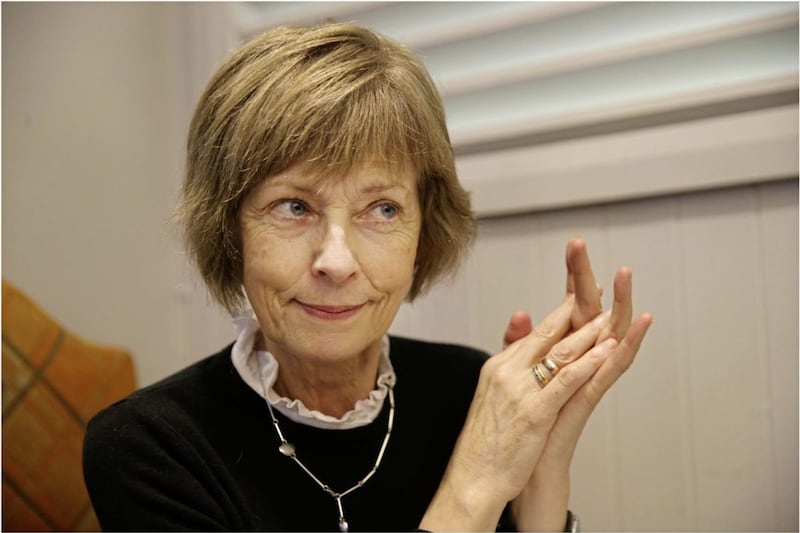THE intertwined story of two very different women from Belfast and how they tried to understand the truth of their lives lies behind The Way We Danced, the haunting new novel from Sophia Hillan.
Set in pre-ceasefire Belfast and moving back and forth from Berlin just before the Second World War and the turmoil of the years which followed, it tells a tale of love, the power of memory and illusion.
It is the second novel from Hillan, a writer born and bred on the Falls Road and who is highly regarded for her 2014 debut novel The Friday Tree as well as her critically acclaimed non-fiction book, May, Lou & Cass: Jane Austen's Nieces in Ireland, which chronicled the real-life stories of the great writer's near relatives.
Her latest work will be launched tonight at Hillan's alma mater, St Dominic's Grammar School, with an opening address from The Truth Commissioner novelist David Park.
In The Way We Danced, university academic and writer Ruth Deacon gets the chance of her life to write a much needed book when she is handed over the papers from her former teacher and writer Edith Barratt.
Deacon's career is on the wane, her marriage in shreds and the care of an elderly relative with dementia is draining her body and soul.
But she is thrown a lifeline by an elderly woman who somehow entrusts her with her most intimate memories as she lives out her final days in a nursing home.
And, as she goes through Edith Barratt's private recollections detailed in 'The Memory Book', she discovers Edith's secret love of a young German and how the briefest but most sublime moments defined her life.
While there are some similarities with Hillan, the former associate director of Queen's University Belfast Institute of Irish Studies, she is quick to point out that although the story is inspired by a real-life figure, that’s where the similarities end.
"It's not really about me at all," she quietly explains to me in her favourite Belfast coffee haunt.
"You spend your life observing and taking in experiences all the time, you just might not realise it. I agree with the writer Ali Smith who said that she was a product of a million books.
"You can't help observing human nature, you can't help observing things and they all mull over in your mind. But the key thing in writing fiction is to give them to a character.
"So I observe and look at things that may have happened to me, or to a friend, or an acquaintance and then I give them to Edith or Ruth and say, 'So what are you going to do with that?'
"Then I sleep on it and if it doesn't feel right for them the next morning, then I start over again."
Hillan, who can count the late literary editors David Marcus and Sam Hanna Bell as her friends and mentors, Michael McLaverty as her inspiration, Seamus Heaney as her teacher and poets Meabh McGuckian, Paul Muldoon and Ciaran Carson as her university peers, is now coming into her own as a novelist.
The mother of two adult children, Judith and John King, she was nominated for the Hennessy Award in 1980, having been published in New Irish Writing and Hanna Bell's Literary Miscellany.
After being entrusted as Michael McLaverty's literary executor and using the papers as the basis for her PhD (and two later books on McLaverty's writings), Hillan segued naturally into a successful academic career at Queen's University before taking early retirement in 2003.
So, with her fascination in the personal papers of figures from the past – the basis for her book on Jane Austen's nieces – it's not surprising that she looked to the past again.
The Way We Danced is inspired by the papers of a little-known Belfast writer and teacher, Margaret Grant Cormack, which were left to the Linen Hall Library.
One of Hillan's former students Ann Heggan came across them and made it the subject of her Master's dissertation.
The discovery that Grant Cormack had a cache of letters written to her by a German soldier around 1938-39 – who she may or may not have been married to – was an intrigue that stayed with Hillan long afterwards.
Inspired by the material and with Heggan's kind permission, Hillan began to write the stories of the two women protagonists of her story separately before bringing them together in one fascinating narrative.
"It was really extraordinary," Hillan says of Cormack's personal story, "and I wondered why she stopped writing to her Nazi soldier and also what it would have been like to have had a relationship with a Nazi soldier if you were living in Belfast, and so the story unfolded from there."
:: The Way We Danced is available now, published by Ward River Press.







